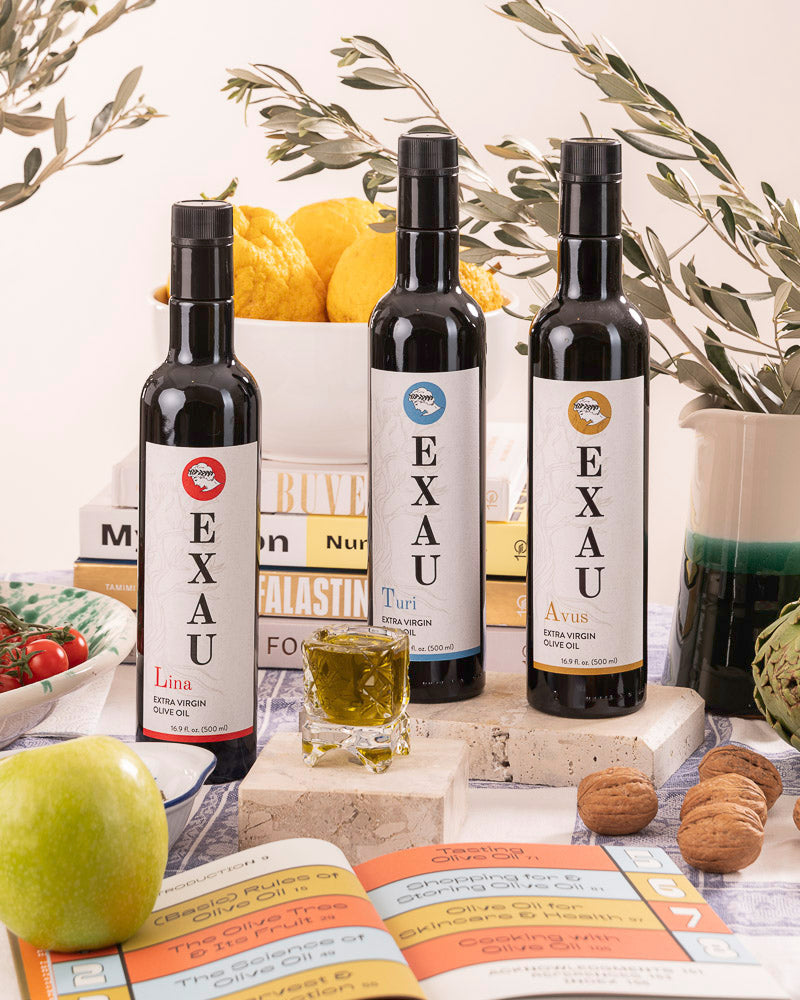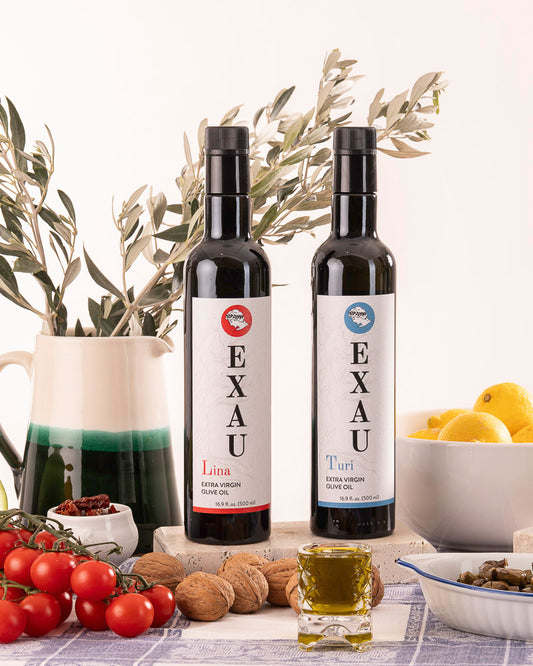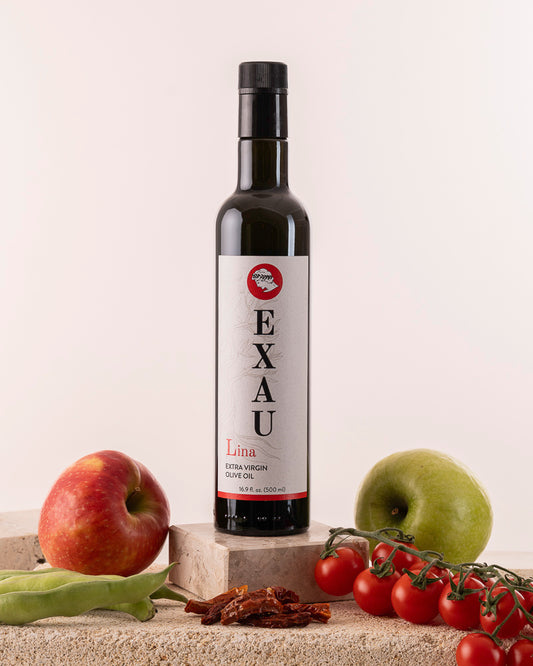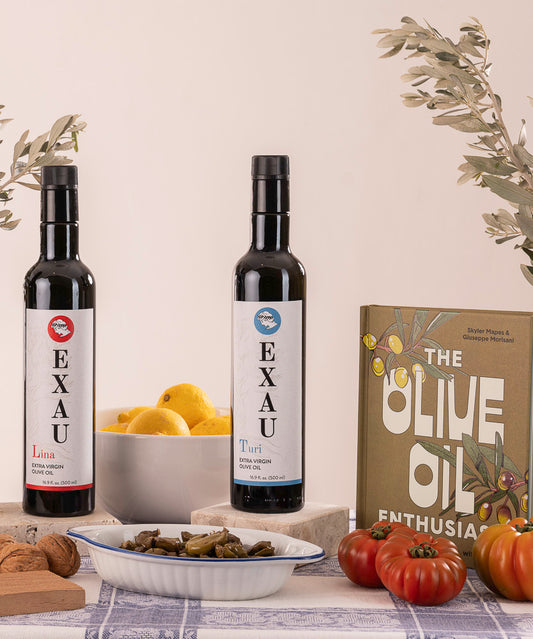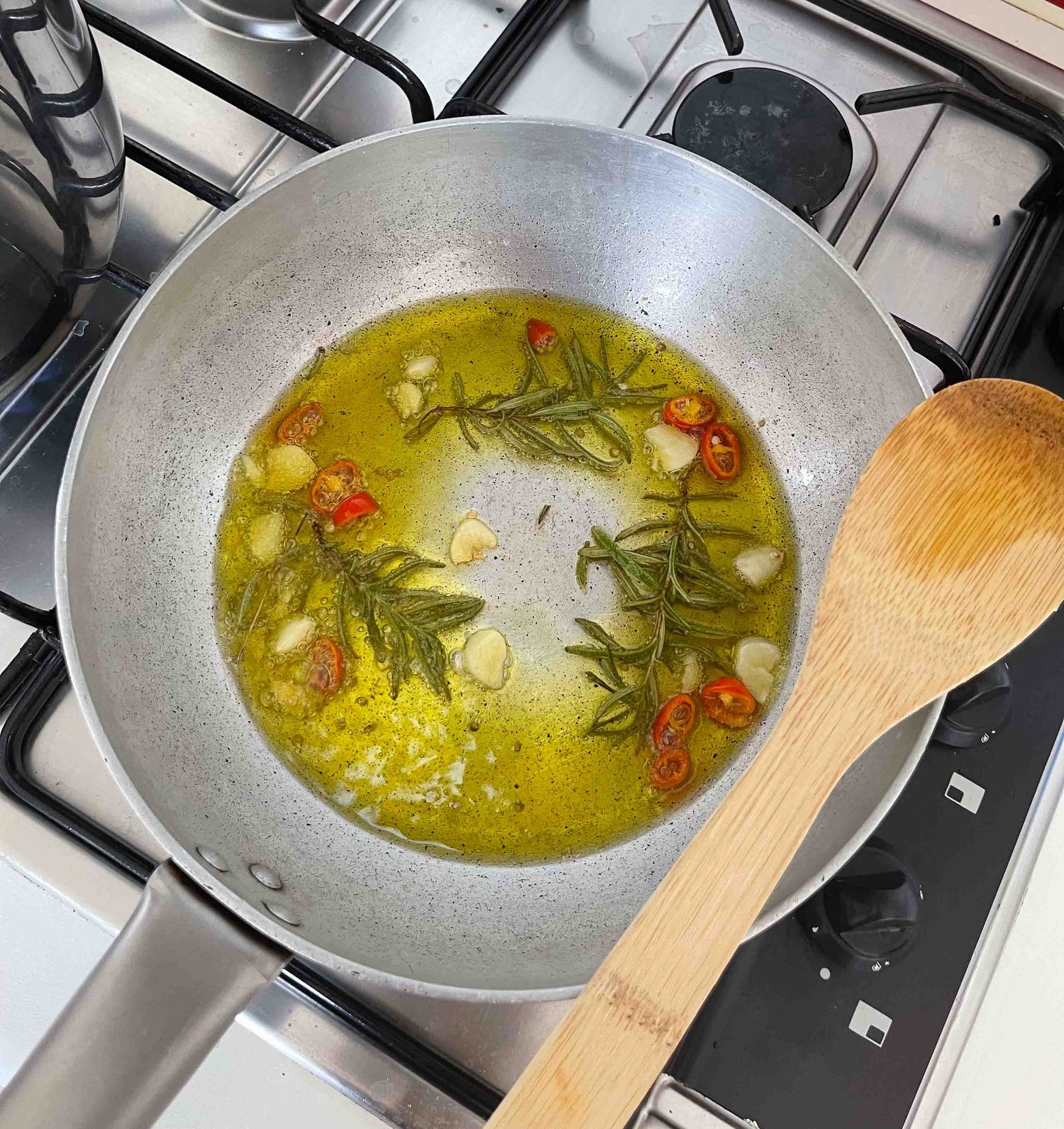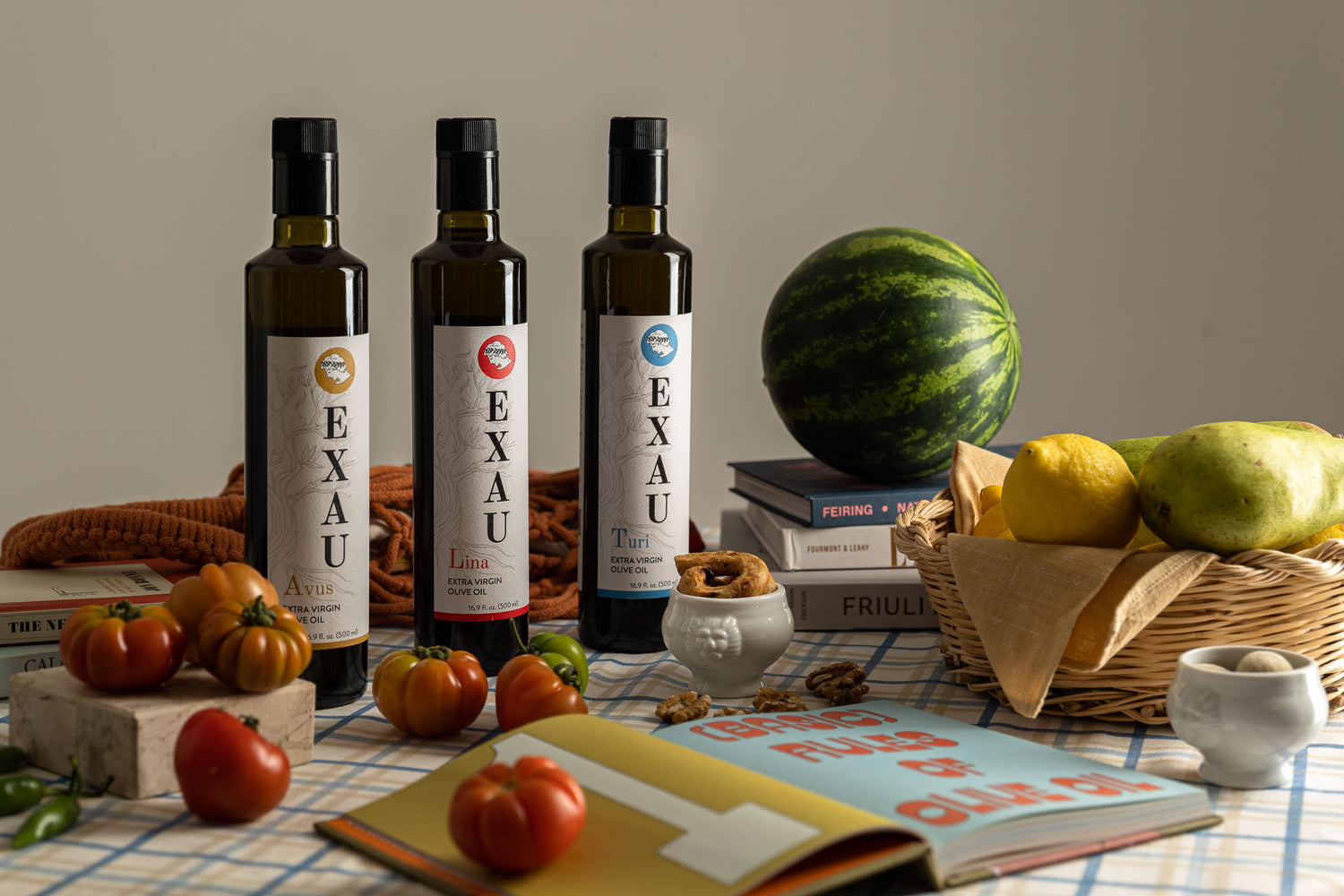Extra virgin olive oil (EVOO) is olive oil that is exclusively produced from the first milling of the olive fruit and that's kneaded and milled at a maximum temperature of 80.6°F (27° C). In order to qualify as extra virgin the product must also be free of sensory defects and meet physicochemical parameters which include but are not limited to maximums for free fatty acids and peroxide levels.

What Makes Extra Olive Oil 'Extra Virgin'?
There are several different grades of olive oil including ordinary, virgin, and extra virgin. Extra virgin olive oil is the highest grade available to consumers.
The product is known for its superior quality and incredible flavors and offers the most health benefits. It's also the most stable when it comes to cooking, baking, and frying.
And lastly, it's the most expensive because it's produced solely through mechanical means without any chemical processing or refining.
As stated previously it must meet very specific criteria in order to make the cut and qualify as extra virgin. Here are a few of the main requirements the product must meet:
- The fruit must be freshly harvested from the tree.
- Can only come from the first milling.
- Can only be produced through mechanical means and with limited heat.
- Have a free fatty acid of level below 0.8%.
- Must have a peroxide level below 20.
- Be free of sensory defects.
There are other criteria the product must meet in order to be considered extra virgin. However, these are the most important metrics and easiest for consumers to understand. Now lives dive a bit deeper into what each requirement means exactly.
Fruit Must Be Picked From The Tree
The olives used to produce EVOO must be picked from the tree to ensure that it's fresh and at peak health.
Fruit that falls onto the ground cannot be used. This is because when fruit such as olives fall they bruise and become exposed to all sort of elements and contaminates within the soil. This can very easily increase the free fatty acid of the final product which isn't what we want.
Therefore, farmers and producers always try their best to maintain the health of the fruit and harvest with extra care.

Milling
Once the fruit is carefully harvested it needs to be milled. The time between harvest and milling is a topic of great debate in the industry.
Most producers agree milling within 24 hours is acceptable. However, smaller, premium producers such as EXAU prefer milling within 8 hours of harvest. Milling within a shorter time frame creates an incredible product, but, it is more logistically challenging.
An experienced mill operator should run the mill smoothly, continuously check the temperature of the product, and monitoring the amount of time the paste spends in the crusher (malaxer). This is a crucial step because if the paste gets too hot it can ruin the product.
When the oil exits the mill it isn't quite extra virgin yet, but rather olio nuovo or novello. It then must be filtered in order to become shelf stable.
Free Fatty Acid (Oleic Acid)
According to the IOC, an extra virgin olive oil must have free fatty acid (FFA) below 0.8 grams per 100 grams, or 0.8%.
The FFA is very important to farmers and producers because it provides information about the health of the tree and fruit. It can indicate that a tree is sick or lacks soil nutrients.
Peroxide Level
The peroxide level is an indication of the degradation and aging of the product as well as its tendency to become rancid. When extra virgin olive oil comes in contact with air it oxidizes.
During production, storage, and bottling it’s best to limit the amount of time the oil comes into contact with air. A high peroxide level means the product has a shorter shelf life. This is also why it’s best to consume an open bottle sooner rather than later.
The IOC states that an EVOO must have a peroxide level below 20. Read more about peroxide levels and their importance here.

Organoleptic Test
For the organoleptic test, the oil(s) are presented to a tasting panel that will taste and judge the products sensory profiles. Some sensory defects may appear.
Defects are usually related to improper storage of the fruit and/or oil, problems at the mill, and/or health of the fruit before milling.
Poor performance during organoleptic tests, regardless of good lab results, can result in the product not being considered extra virgin.
Other Parameters
There are other parameters the product must meet in order to be considered extra virgin, you can read about them here.
Dirty Oil
Chemical correction within the industry is a nasty bit of business. This process is used when a ‘producer’ blends a real, pure olive oil with another oil, such as sunflower oil. Then chemically corrects the final product to make it look and taste like a pure olive oil. The industry is coming down on companies that use these dirty tactics.
Blending Old and New Oils
This is a tactic used to make the product stretch longer. There is nothing wrong with blending new and oils, the issue lies in providing transparency for the customer. This is why it’s always important to look for a harvest date.
Related: A Guide to Italian EVOO
Olive Oil Councils Explained
There are several different councils around the globe and the definition of extra virgin olive oil may change depending on where one is producing their oil and whose standards they follow.
For example, the COOC in Berkeley, CA states that an extra virgin olive oil must have a FFA below 0.5% while the IOC in Madrid, Spain states that it must have an FFA below 0.8%. Then the NAOOA also has its own set of standards.
To everyday consumers the differences in standards are arbitrary. However, for producers, the differences in standards can heavily impact whether or not their product is considered extra virgin.
At EXAU, our products are 100% produced in Calabria, Italy. Therefore, we follow the IOC’s standards. We stay up to date on the standards other councils implement to gain an understanding of the industry globally.
The IOC
The IOC was founded in Madrid, Spain in 1959. The founding members were Belgium, France, Greece, Italy, Portugal, Spain, and the United Kingdom.
The most important work the IOC does is provide the industry with a set of standards, methods, and guides for producing different grades of olive oil. By providing these guides it allows different countries to adhere to similar standards and improve upon them as they see fit.
All of the IOC standards and guides are accessible to the public, free, and available in multiple languages.
FDA Regulation
The FDA does not regulate the differences between ordinary, virgin, and extra virgin olive oil. However, the FDA does regulate all imported foods, including olive oil. But, since they do not monitor the different grades of the product the boundaries and rules for this industry can feel very opaque.
In the end, the olive oil industry is in a way self-regulated which provides a ton of freedom. However, this also makes it quite challenging to navigate as a consumer. And it makes it very easy for folks to absorb and share misinformation. This is one of the biggest challenges farmers and producers face and it's one of the reasons we wrote our book.
Conclusion
Extra virgin olive oil is a simple food, however, producing it is wildly complex. Creating an incredible product requires producers to focus on the details.
Shop our high-quality extra virgin olive oil today, 100% produced in Calabria, Italy!
You May Also Like...
What Does First Cold Pressed Mean?
How to Tell if Your OO is Fake
We wrote a book called The OO Enthusiast, have you ordered it yet?
If you learned something new or have opinions on this topic, please leave a comment and let us know your thoughts! We love to hear from you. If you’re on Instagram, TikTok, or Facebook don’t forget to tag us and use #EXAUoliveoil so we can repost!
